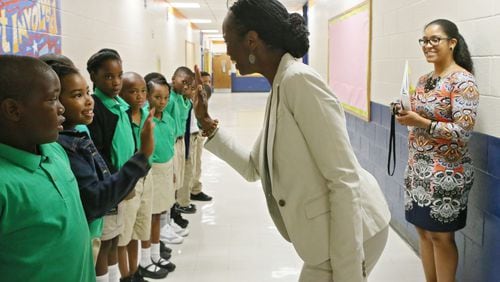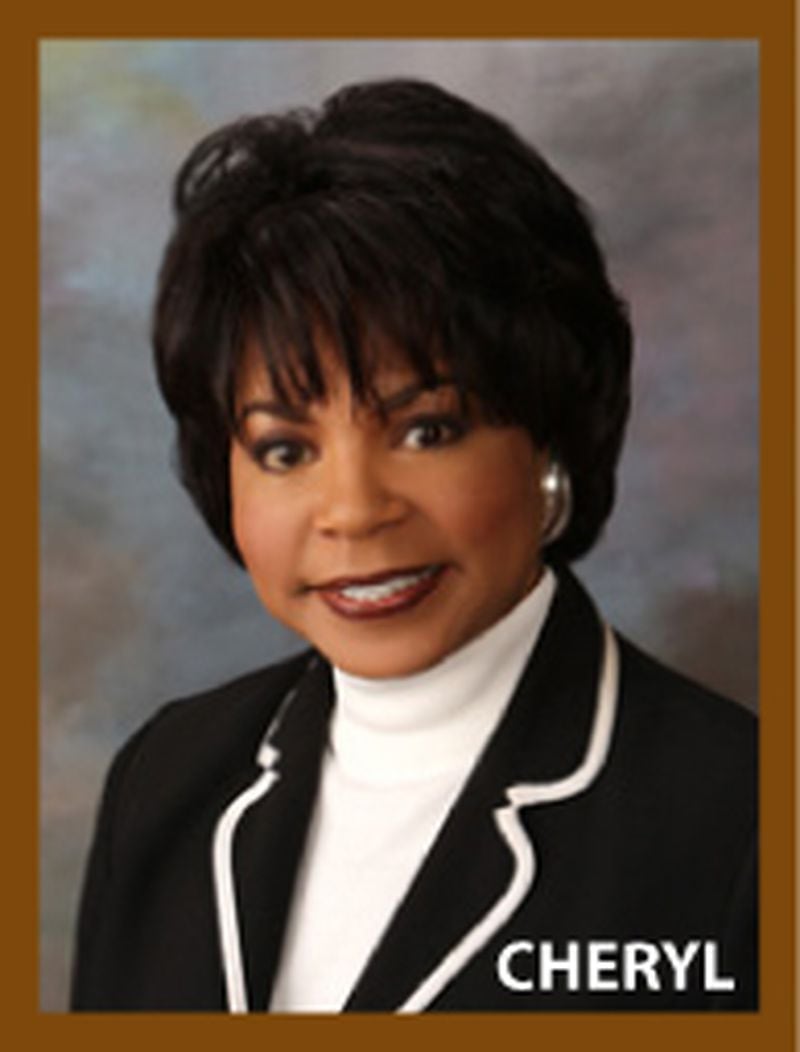Cheryl Brown Henderson, whose father Oliver Brown was the leading plaintiff in Brown v. Board of Education, writes today about the value of charter schools and how school choice relates to her father's legacy. She is the founding president and CEO of the Brown Foundation for Educational Equity, Excellence and Research and on the board of the National Alliance for Public Charter Schools.
Tonight at 7, civil rights and education activists will meet at Ebenezer Baptist Church to discuss the role of charter schools in the African-American community. The "Is School Choice the Black Choice" forum will discuss how charter schools are serving African-American students, who represent 28 percent of national charter school enrollment. Georgia's 100 charter schools educate 83,000 students, 28,000 of whom are African-American.
A panel at the forum includes journalist Roland Martin, author and choice advocate Kevin Chavous, Atlanta Board of Education Chair Courtney English, President for the Georgia chapter of the NAACP Francys Johnson and Director of School Operations at KIPP Strive Primary School Terra Walker.
Here is Henderson's column on the importance of charter schools to black students.
By Cheryl Brown Henderson
As we approach Martin Luther King Day on Monday, civil rights and Dr. King’s legacy are at the forefront of the national dialogue. For me, the struggle for civil rights is directly tied to the struggle to ensure that children of color can sit in the classrooms of excellent public schools just like their white peers.
This belief in the centrality of education is both personal and practical. On the personal level, it is so important to me because my father, Oliver Brown, was part of the brave group of parents who filed the lawsuit against the Topeka, Kansas Board of Education.
The Supreme Court case that resulted, Brown v. Board of Education, paved the way for children of color like me to have educational options that were closed off to us before.
My commitment to education also is practical because of what I have seen throughout my career. Time and time again, I have experienced the power of an excellent education to propel children of color on a pathway of success. I have unfortunately also seen the opposite. I have seen how under-resourced failing schools needlessly hold bright children back, placing barrier after barrier in their way as they try to use their God-given talents to climb the ladder of opportunity.
My personal and practical history helps to explain why I continue to speak up about the NAACP’s decision to make a moratorium on charter public schools part of their national policy.
Credit: Maureen Downey
Credit: Maureen Downey
Let me first say that all of us owe a huge debt of gratitude to the NAACP. When the successful argument was made for African-American parents in the 1950s, it was NAACP lawyers who achieved this historic accomplishment. And in the decades since, the organization has been an effective and passionate advocate for equality in our schools.
So it is no exaggeration to say that I consider the NAACP a true ally and friend in the movement for civil rights and quality schools for all children. But sometimes it’s necessary to tell your friends when they are wrong, and I believe the organization is wrong on charters. Public charter schools aren’t an impediment to equality and success for children of color, they are a valuable tool.
This is the message that I hope to hear as the NAACP continues to travel across the country, holding town hall discussions on public education and the role of charter schools.
Across the country, three million students are enrolled in public charter schools and millions more are on waiting lists hoping for a spot. What’s important to realize is that the majority of those students are children of color. In fact, across the country charter schools educate more children of color and children living in low-income households than traditional public schools.
Those parents who send their children to charters and who are willing to wait on those long lists are doing so for a very good reason. Charter public schools work. And they work especially well for children of color.
This was recently confirmed by a Stanford University study, which found that, compared to their similarly situated peers in traditional public schools, children of color in charter schools learn dramatically more.
Black students in public charter schools gained an average of 36 extra days of reading and 26 extra days of math when compared to their traditional school peers. For black students from low-income backgrounds, the relative gains were even more impressive. Those students gained 44 more days of reading and 59 days -- almost two whole months -- of extra math.
With educational gains like that, charter public school students are set up for success. Sitting in classrooms where teachers are able to use curricula that have been designed to fit their needs gets kids excited about learning. And this excitement carries right through their school years. Charter high school graduation rates are higher than traditional public schools, and there are many charter schools where every single student walks across the stage at graduation.
Dr. King once remarked that “If America is to remain a first-class nation, we cannot have second class citizens.” For too long, our public schools have failed kids of color, treating them like second class citizens by failing to teach them how to read, how to write, how to do math and how to succeed in college and in life.
Charter public schools are not perfect. The NAACP is right to call out that all schools, including charters, need to do a better job of integrating our students. But as advocates for civil rights and educational equality, our task is not to close off an important path to learning, but to expand this success and build on it. Instead of calls for moratoriums, there should be calls for taking the lessons of successful public schools of all models and applying them to underperforming schools.
We want all of our kids -- whether they attend charters, magnets or traditional public schools -- to receive the education that will ensure that they are first-class citizens. On this MLK Day, this should be our goal.
.
About the Author








